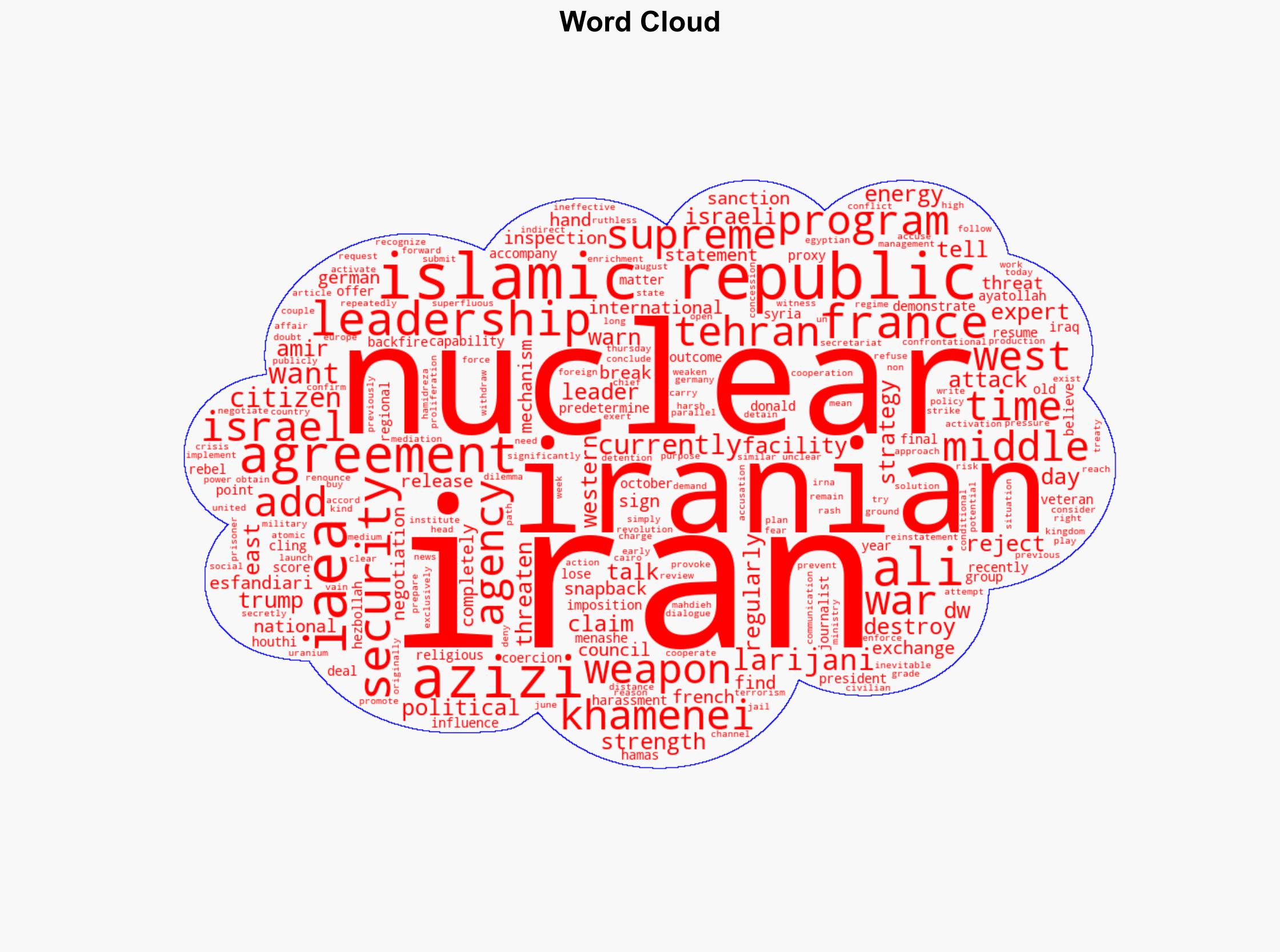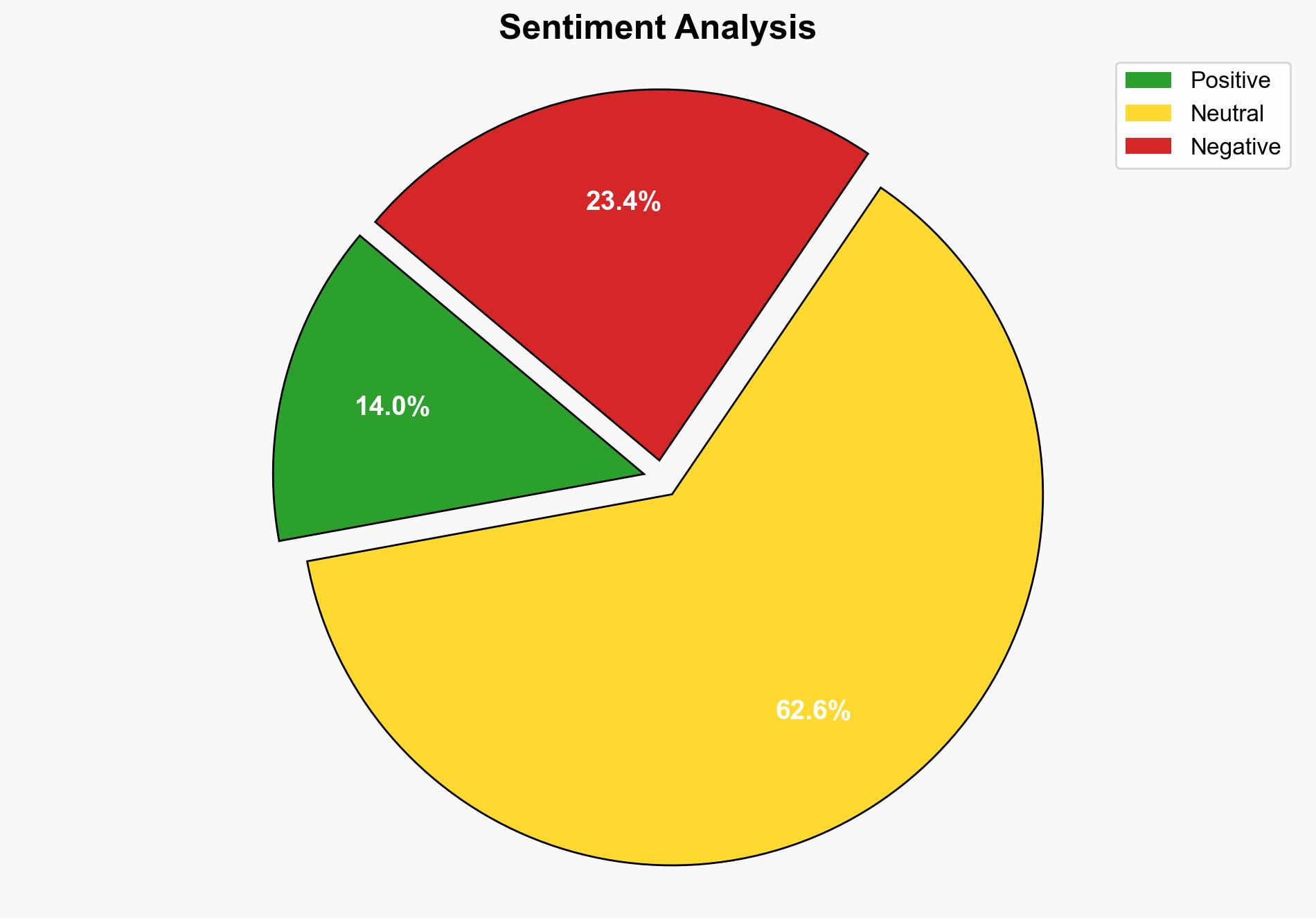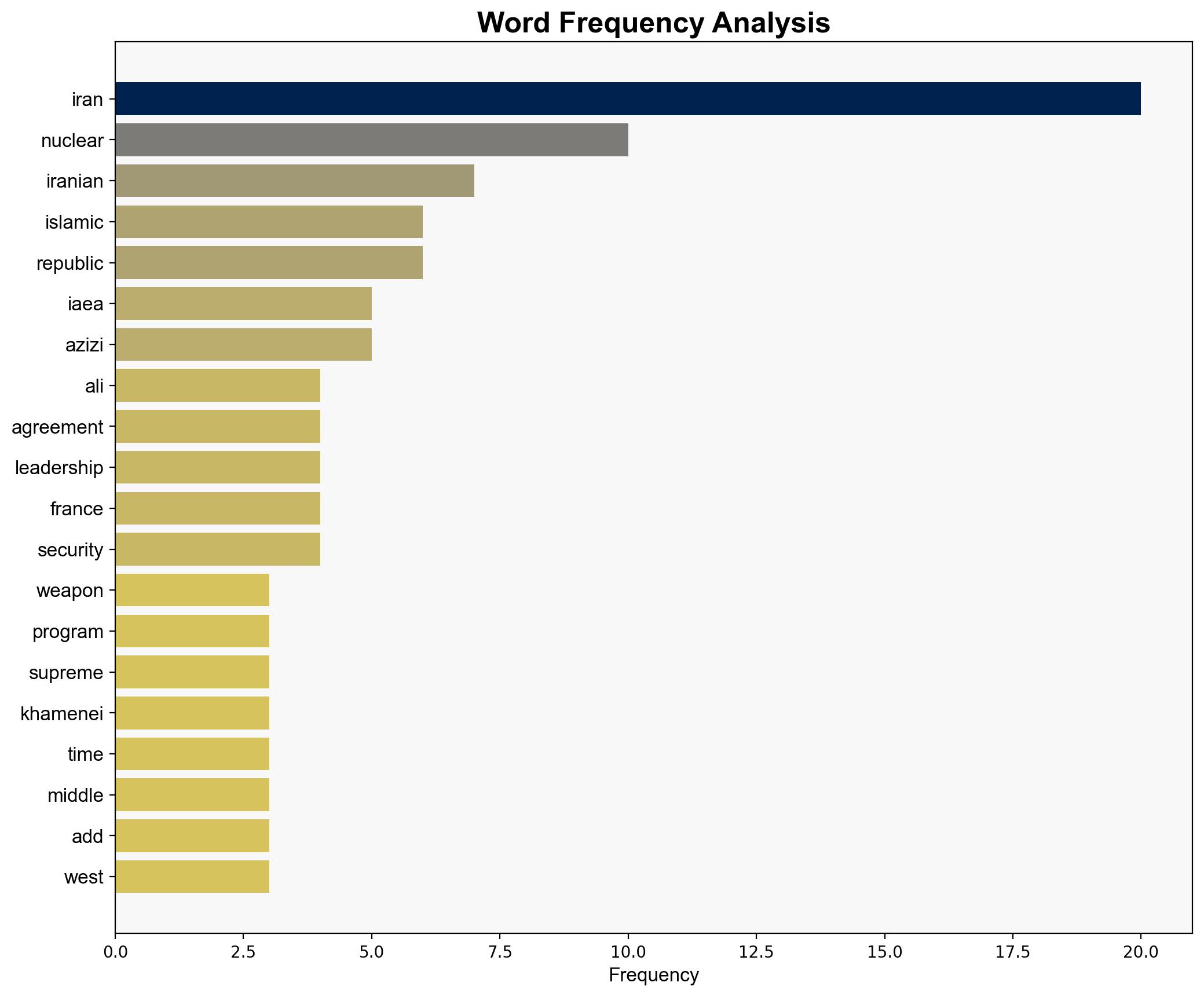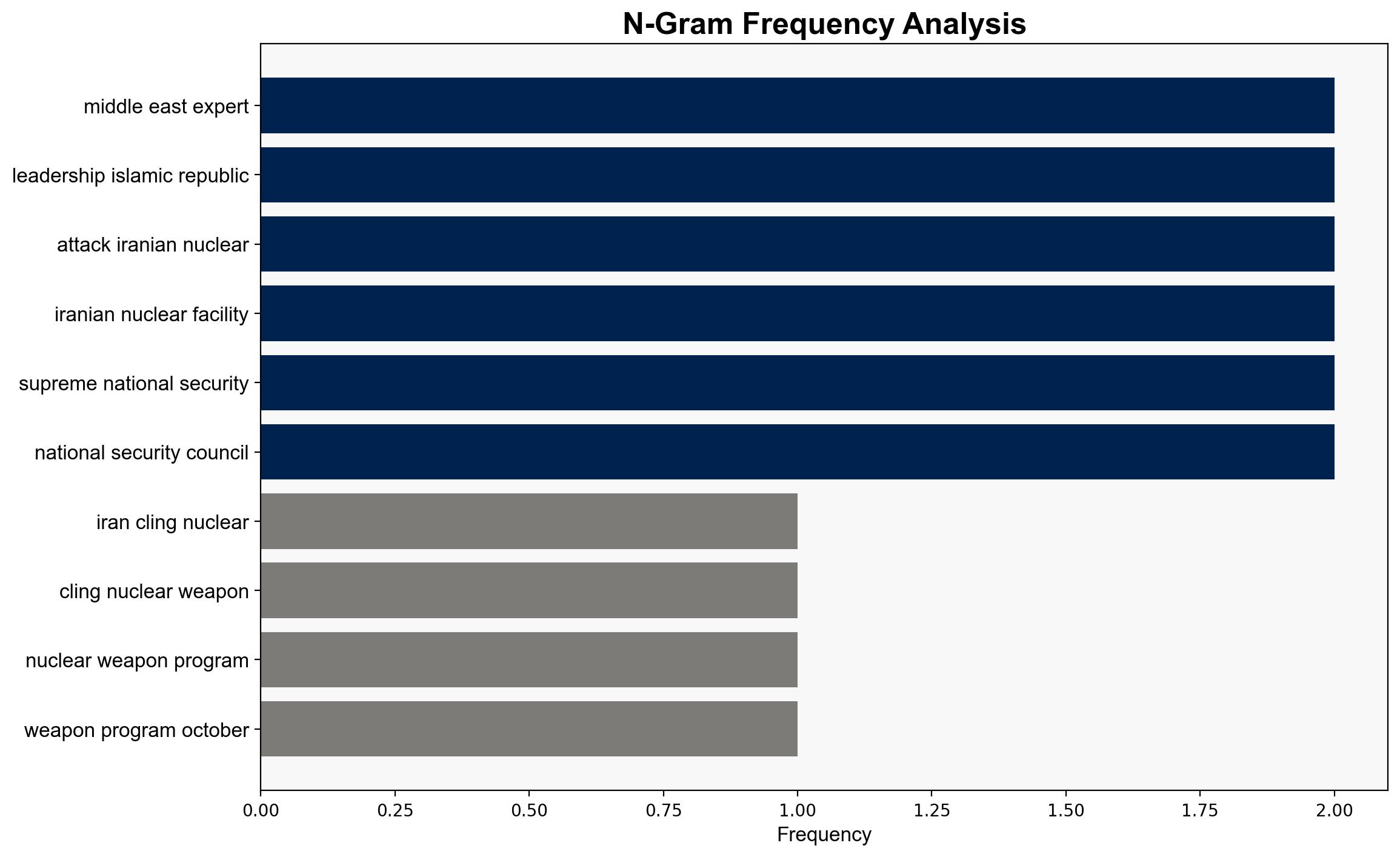Why is Iran clinging to its nuclear weapons program – DW (English)
Published on: 2025-10-24
Intelligence Report: Why is Iran clinging to its nuclear weapons program – DW (English)
1. BLUF (Bottom Line Up Front)
Iran’s continued commitment to its nuclear program is likely driven by a combination of strategic deterrence and domestic political considerations. The most supported hypothesis suggests that Iran aims to strengthen its regional influence and deter foreign intervention. Confidence in this assessment is moderate due to conflicting signals from Iranian leadership. Recommended action includes enhancing diplomatic engagement with Iran to explore avenues for de-escalation and monitoring regional proxies to assess shifts in influence.
2. Competing Hypotheses
1. **Deterrence and Regional Influence**: Iran maintains its nuclear program to deter foreign intervention and bolster its regional influence, particularly as its proxies like Hamas and Hezbollah face challenges.
2. **Domestic Political Strategy**: The nuclear program is used as a tool for domestic political consolidation, allowing the leadership to rally nationalist sentiment and distract from internal issues.
Using the Analysis of Competing Hypotheses (ACH) 2.0, the first hypothesis is better supported by the evidence of Iran’s strategic posturing and historical use of nuclear capability as a deterrent.
3. Key Assumptions and Red Flags
– **Assumptions**: It is assumed that Iran’s leadership is rational and seeks to avoid direct conflict. Another assumption is that regional influence is a primary goal.
– **Red Flags**: Contradictory statements from Iranian officials suggest internal disagreement or strategic deception. The lack of transparency in Iran’s nuclear activities raises concerns about hidden agendas.
– **Blind Spots**: Potential underestimation of domestic political pressures influencing Iran’s nuclear decisions.
4. Implications and Strategic Risks
– **Escalation Risks**: Continued nuclear development could provoke preemptive strikes from regional adversaries like Israel, leading to broader conflict.
– **Geopolitical Dynamics**: Iran’s actions may trigger a regional arms race, destabilizing the Middle East further.
– **Economic Impact**: Sanctions and military tensions could exacerbate economic challenges within Iran, potentially leading to internal unrest.
5. Recommendations and Outlook
- Engage in multilateral diplomatic efforts to address Iran’s security concerns and offer incentives for compliance with international norms.
- Enhance intelligence-sharing with regional allies to monitor shifts in Iran’s proxy networks.
- Scenario Projections:
- **Best Case**: Diplomatic breakthroughs lead to a reduction in nuclear activities and regional tensions.
- **Worst Case**: Military confrontation with Israel escalates into a broader regional conflict.
- **Most Likely**: Continued stalemate with periodic diplomatic engagements and proxy skirmishes.
6. Key Individuals and Entities
– Ayatollah Ali Khamenei
– Ali Larijani
– Menashe Amir
– Hamidreza Azizi
7. Thematic Tags
national security threats, regional influence, nuclear deterrence, geopolitical strategy




